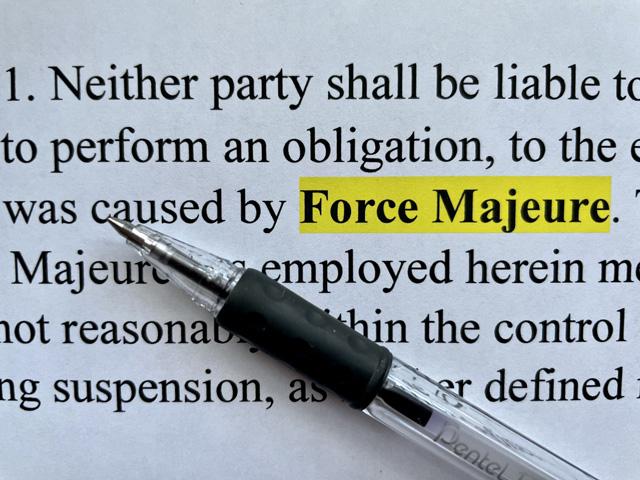In the unpredictable world of construction, unexpected events can occasionally disrupt the smooth progression of a project. For instance, the recent COVID 19 outbreak in 2019 which stopped most if not all construction activities for a lengthy period of time. One of the key concepts that addresses such unexpected events in contract law is “forced majeure.” In the context of the UK construction industry, understanding the intricacies of forced majeure is crucial for contractors to ensure they are adequately protected. In this weeks post, we’ll explore what forced majeure means, how it applies to UK construction contracts, and the potential consequences for contractors if its stipulations are not followed correctly.
What is Forced Majeure?
Forced majeure can be translated from French as “superior force.” In legal terms, it refers to unforeseeable events or circumstances that prevent a party from fulfilling their contractual obligations. Examples include natural disasters like earthquakes or floods, wars, strikes, or even as we have witnessed in recent times a global pandemic.
While there isn’t a standard definition in English law, many contracts, especially in the construction sector, incorporate forced majeure clauses to allocate risks and provide relief from performance under certain conditions.
Application in UK Construction Contracts
Several standard forms of construction contract used in the UK include provisions relating to forced majeure:
JCT Contracts: The Joint Contracts Tribunal (JCT) forms often list force majeure as a relevant event. However, they don’t define it explicitly, leaving it up to the parties involved to interpret its meaning or provide a specific definition.
NEC Contracts: The New Engineering Contract (NEC) form does not use the term “forced majeure” but includes provisions for “prevention” which covers events neither party could prevent and which would result in it being impossible for the work to be completed.
FIDIC Contracts: The International Federation of Consulting Engineers (FIDIC) Red and Yellow Books list “exceptional events” which are effectively a force majeure clause. These include war, natural catastrophes, and other “unforeseeable” events that are beyond the parties’ control.
The manner in which a forced majeure event is handled – be it extensions of time, costs, or termination – often depends on the specific wording of the contract in question.
Consequences for Contractors
Failure to adhere to the stipulations of a forced majeure clause can have severe repercussions:
Loss of Entitlement: A contractor who wrongly claims relief under a force majeure clause might lose their entitlement to any extension of time or additional payment.
Damages for Breach: If a contractor stops work citing forced majeure when the conditions aren’t met, they could be liable for damages for breach of contract.
Reputational Impact: Incorrect handling of forced majeure situations can damage a contractor’s reputation, potentially harming future business prospects.
Termination Risks: Some contracts allow for termination if a force majeure event continues for a specified duration.
Conclusion
Forced majeure, while often seen as a protective clause, is a double-edged sword. While it offers a potential route to relief from performance in the face of unforeseeable events, its misapplication can bring about financial and reputational damage. Contractors in the UK construction industry should be well-acquainted with the specifics of forced majeure clauses in their contracts and consult with legal experts when in doubt.
For more insights on surveying topics, stay tuned to optimalsurveying.co.uk.
Disclaimer: The content of this blog post is for informational purposes only and should not be considered legal advice. Always consult with a qualified legal professional regarding any contractual or legal matters.

